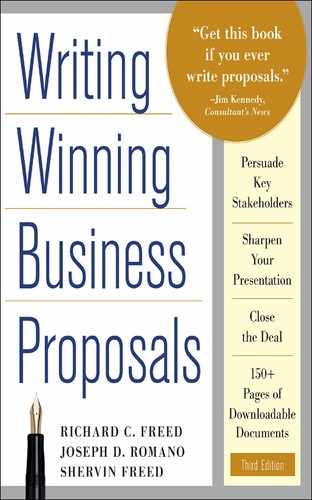APPENDIX H
A Worksheet for Qualifying Your Lead
Many people believe that lead qualification is a single step in the business-development process that occurs early on. Once the lead is qualified, according to this belief, and the decision is “Go” rather than “No go,” it’s full speed ahead and never look back. Of course, that belief is mistaken because the quality of a lead is always in flux. What once appeared a done deal can quickly become a dead deal. New competitors could enter the picture. The economic buyer could change. One of your key subject-matter experts might find herself otherwise engaged. A new and negative buyer could join the consultant-selection committee. In short, relationships are always changing, and situations are never preserved in amber. As a result, you must keep qualifying to determine how to apply your limited resources most effectively.
To help you qualify your leads, I’ve developed three worksheets based on the concepts in this book. Most likely, you have your own criteria for qualifying leads, and these worksheets are not intended to replace those criteria but to augment them. The worksheets are automated in Excel via some truly elementary programming and can be downloaded at: http://mhprofessional.com/freed. As with all the downloadable materials, feel free to modify the worksheets as you please.
One worksheet focuses on the logics of the situation—that is, for example, on the overriding problem and questions and on deliverables and benefits. Another worksheet focuses on the psychologics of the situation—that is, for example, on your positioning in relation to the economic buyer and his or her team’s evaluation criteria, as well as to your competition. A summary worksheet calculates your score, providing a “forecast” of your positioning and some strategies you might employ based upon that positioning.
Keep in mind that, like the weather, forecasts always change, and you must be ever alert to how quickly today’s sunshine can give way to tomorrow’s storms. Regarding lead qualification, you must focus, not just on what is happening today, but on what could happen tomorrow. As Steve Jobs famously said, paraphrasing what Wayne Gretzky famously said, “. . . skate to where the puck is going to be, not [to] where it has been.”
